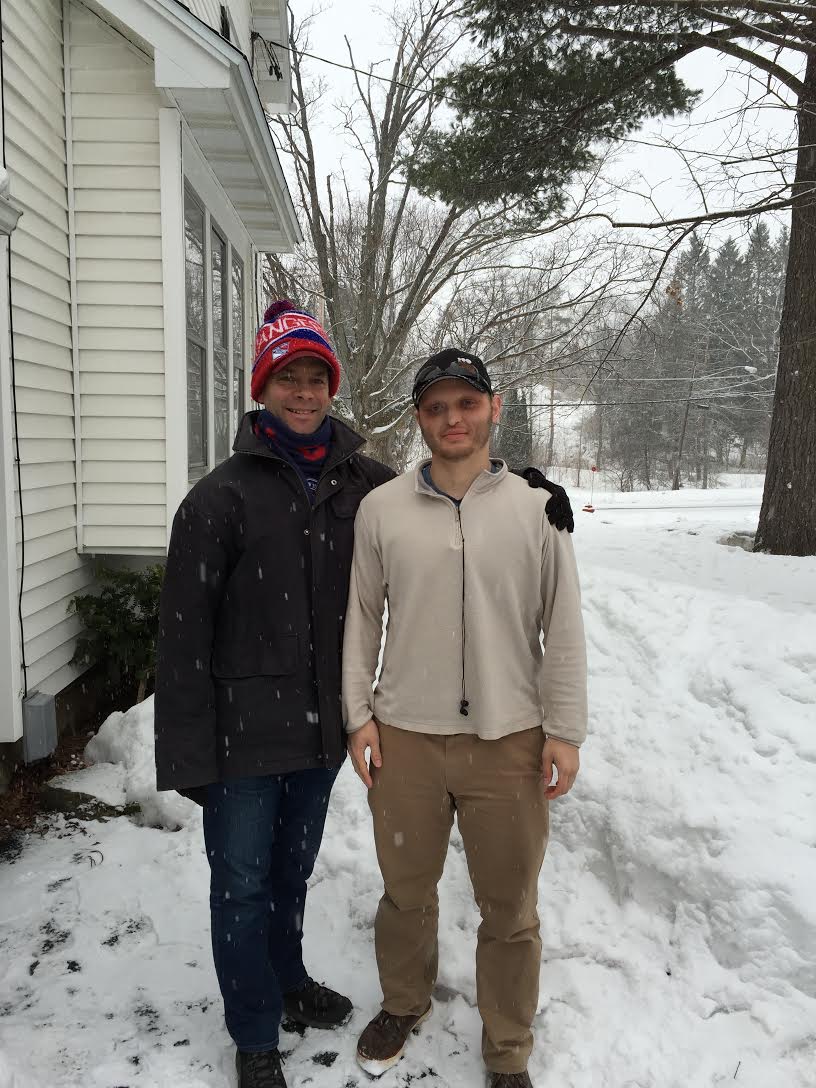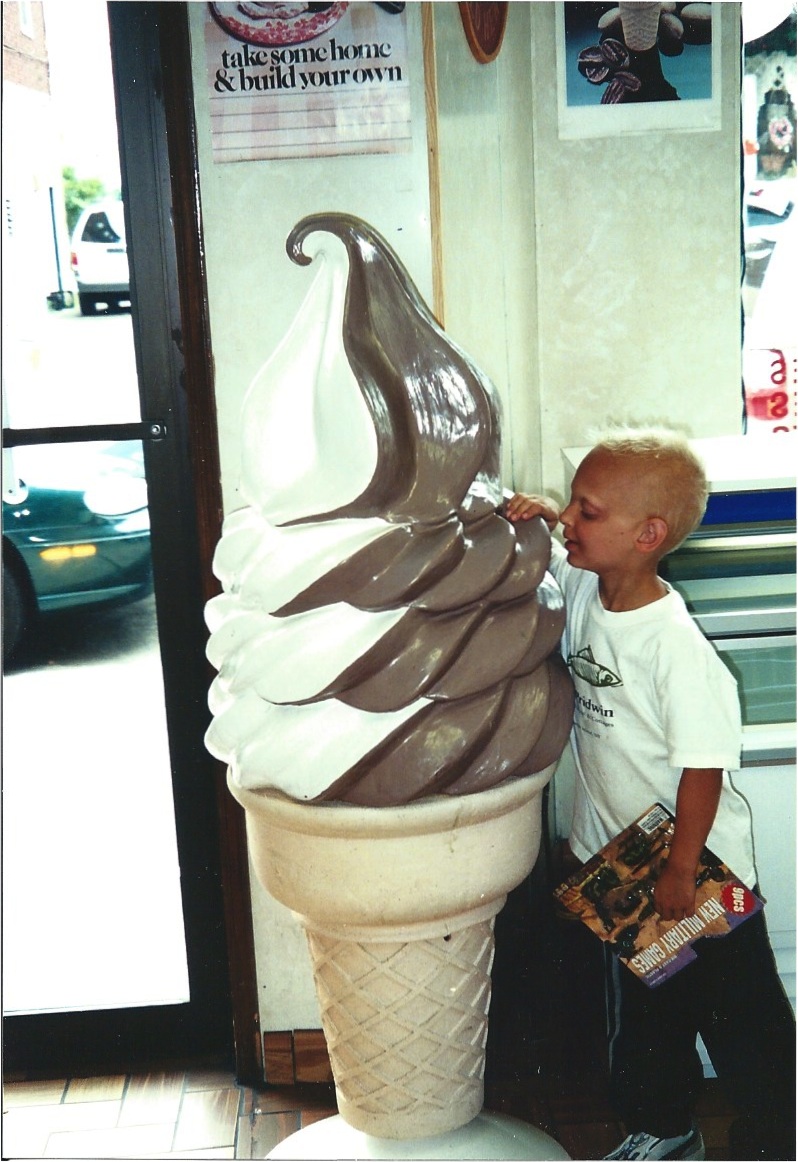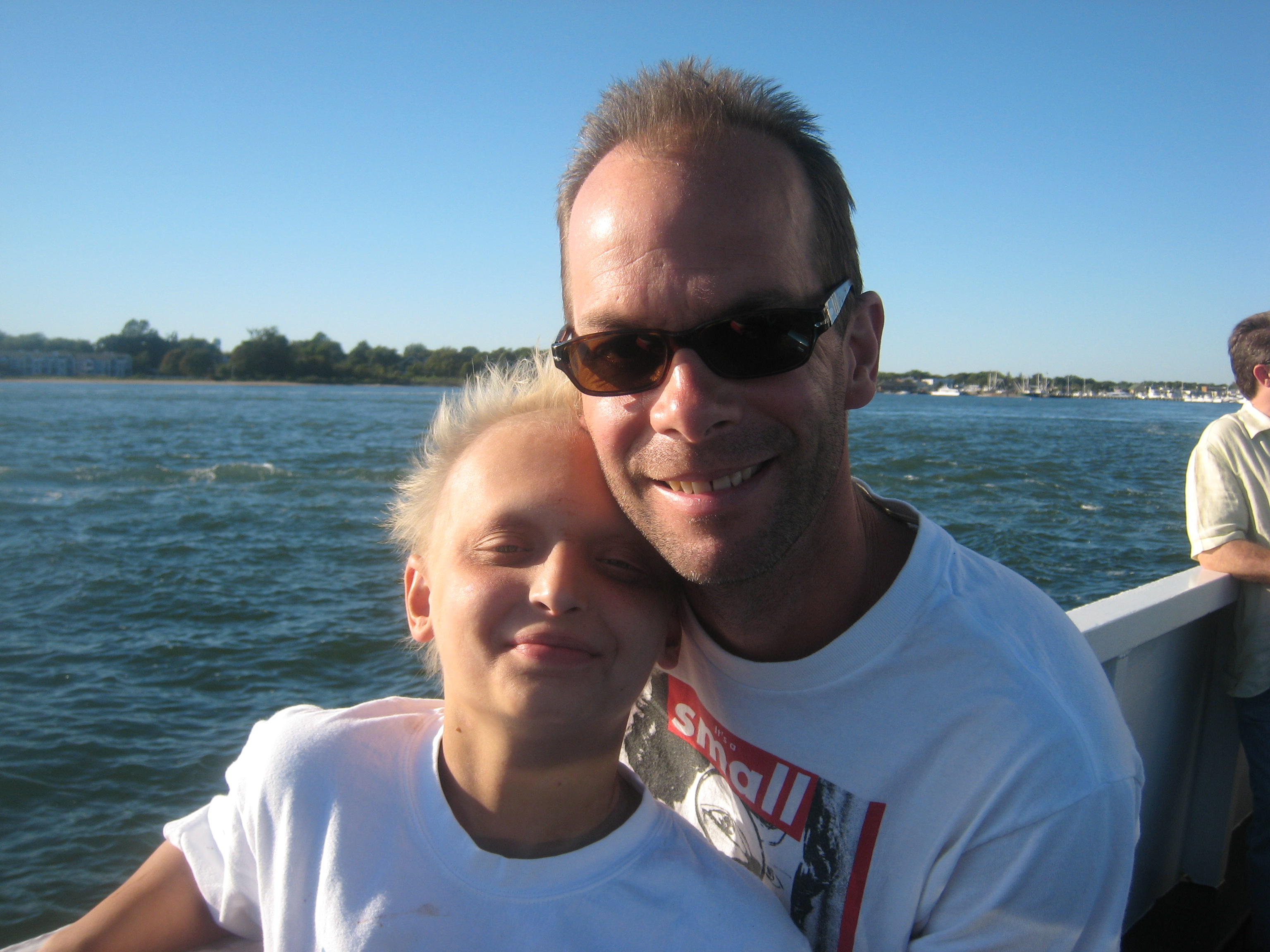By Seth Ferris

I live in Brooklyn, New York. And during any given week, any given day, I come in contact with millions of people, some of whom are not too shy about telling a complete stranger what they think of them. You bump into somebody and get a “Hey! Watch it!” or worse.
You look at somebody the wrong way and you may get a threatening shout. It goes with the territory and you try to let their comments slide off of you. You develop your own force field against these constant comments.

When my son Mac was very little, other people’s comments about his condition were met with an explanation, a desire to inform and teach that person about ectodermal dysplasia. He acted like all the other little kids running around, falling down doing kid stuff.
But Mac looked different. He had no eyebrows, sparse hair, light skin and only two teeth. His appearance made him stand out from the other kids. But by 2 ½ Mac had a set of dentures, and this gave him a perfect smile. But keeping those dentures in was quite the challenge.
His hair was still very fine and white and would stick out all over the place but he was small and it seemed to be filling in as he got older. Besides, other kids’ hair never laid flat or remained combed into place.
I would take him to playgrounds and parks and other parents would make comments about him, ask me if Mac was ok, if he was sick or if he had cancer. And I would say no, and explain that he had a genetic condition and that’s just part of the condition and that he’s fine.
I would try to talk to them, try to educate them about ectodermal dysplasia and how its not getting worse that’s just how it is and that he’s fine and my talk was usually met with a glazed over stare. I would lose them as soon as I said “ectodermal dysplasia.”
I would feel their stares and hear their comments as they left. This really hurt me because all I wanted was for my child to accepted, to be apart of “the group.” Being a parent, you are protective of your child. Being a parent of a child with a genetic condition, a child with ectodermal dysplasia, you are much more protective. I certainly was.

Mac’s hair did not continue to grow in. It remained fine and sparse and seemed to get thinner as he got older. Not having eyebrows and dark areas under his eyes just added to him standing out from the crowd.
I noticed the stares and I would hear the laughs and then, when Mac wasn’t looking, I would try to stare them down or silently mouth, “Knock it off!” to them. These confrontations would happen whenever we went outside but it really became apparent in the close confines of the subway car.
One day, there was a group of older kids, loud and obnoxious, standing not far from us. At first complete silence. Then came the whispers, then giggles then laughs. I was getting upset, shifting on my feet, getting more and more tense.
Then, one actually started to photograph Mac and that was it! That was going too far! I moved and started to say something to that teenager but all of a sudden Mac grabs my arm and says, “Dad, it’s alright.”
He looked me in the eye and said, “Dad, it’s alright.” And that’s all it took. He showed me in that simple way that he was not going to let it bother him. That what they said wasn’t worth getting into a confrontation over or into a fight. My son showed me that he was stronger than their words.
Editor’s Note: Seth Ferris is the father of Mac who is affected by hypohidrotic ectodermal dysplasia. For the past three years, he has been running to raise awareness about ectodermal dysplasia and the NFED. Click here to check out his fundraiser page.
Would you like to share your story? Contact Jodi Edgar Reinhardt at jodi@nfed.org or click here and complete the “Contact Us” form.
You may also like:
Struggling to survive with ectodermal dysplasia
A Chance Meeting Changed My Life
A Little Step May Be the Beginning of a Great Journey!
Share Your Story
Great story Seth! I do have to say it brought a tear to my eyes because it touched my heart at how strong Mac was and is. Also, how close to home it was to me with what we all go through. Thanks for your story!
Thanks Terri! Yes, its from my heart. I love him so much and just want him to happy. And he is! He Loves his college, loves the program he’s in. I am so proud of him!
It’s 5 in the morning. I have been up reading and researching on ED. Your story brought tears to my eyes.
My daughters who is 1 and 3 year old has many years ahead to go through with ED. Thanks for sharing your story Seth
Hi, Nadine. This is Jodi from the National Foundation for Ectodermal Dysplasias. We are glad you enjoyed Seth’s story! Please let us know if there’s anything we can do for you. This journey can be an emotional one but know that you are never alone. We are here to help! You can call us at 618-566-2020, email us at info@nfed.org. We’d love to talk to you. If you have not yet done so, consider joining our Facebook page at https://www.facebook.com/NationalFoundationforEctodermalDysplasias/?ref=bookmarks/. Also, if you fill out the form at https://nfed.org/join-us/, we have lots of information and support we can provide for you. Take good care and let us know how we can help.
This child of mine you stare at so
please come closer so you will know
just who my child is and what I see
when those sweet eyes stare back at me
Mac was an amazingly kind and creative child and now his success as an adult is a reflection of the positive parenting you always provided-Bravo! Gary Shulman